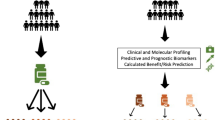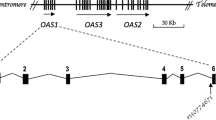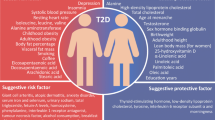Abstract
Previously we have conducted a genome-wide search for inflammatory bowel disease susceptibility loci in a large European cohort. Results from this study demonstrated suggestive evidence of linkage to loci at chromosomes 1q, 6p, and 10p and replicated linkages on chromosomes 12 and 16. Recently, NOD2/CARD15 on chromosome 16q12 has been found to be strongly associated with Crohn's disease. In order to determine if there are other loci in the genome that interact with the three associated functional variants in CARD15 (R702W, G908R, 1007fs), we have stratified our large inflammatory bowel disease genome scan cohort by dividing pedigrees into two groups stratified by CARD15 variant genotype. The two pedigree groups were analysed using non-parametric allele sharing methods. The group of pedigrees that contained one of the three CARD15 variants had two suggestive linkage results occurring in 6p (lod = 3.06 at D6S197, IBD phenotype) and 10p (lod=2.29 at D10S197, CD phenotype). In addition, at 16q12 where CARD15 is located, the original genome scan had a peak lod score of 2.18 at D16S415 (CD phenotype). The stratified pedigree cohort containing one of three CARD15 variants had a peak lod score of 0.90 at D16S415 (CD phenotype), accounting for approximately less than half of the genetic evidence for linkage at this locus. This result is in agreement with the existence of a substantial number of private variants at the NOD2/CARD15 locus. Interaction with NOD2/CARD15 needs to be considered in future gene identification efforts on chromosomes 6 and 10.



Similar content being viewed by others
References
Cho JH, Nicolae DL, Gold LH, Fields CT, LaBuda MC, Rohal PM, Pickles MR, Qin L, Fu Y, Mann JS, Kirschner BS, Jabs EW, Weber J, Hanauer SB, Bayless TM, Brant SR (1998) Identification of novel susceptibility loci for inflammatory bowel disease on chromosomes 1p, 3q, and 4q: evidence for epistasis between 1p and IBD1. Proc Natl Acad Sci USA 95:7502–7507
Clayton D (1999) A generalization of the transmission/disequilibrium test for uncertain-haplotype transmission. Am J Hum Genet 65:1170–1177
Curran ME, Lau KF, Hampe J, Schreiber S, Bridger S, Macpherson AJ, Cardon LR, Sakul H, Harris TJ, Stokkers P, Van Deventer SJ, Mirza M, Raedler A, Kruis W, Meckler U, Theuer D, Herrmann T, Gionchetti P, Lee J, Mathew C, Lennard-Jones J (1998) Genetic analysis of inflammatory bowel disease in a large European cohort supports linkage to chromosomes 12 and 16. Gastroenterology 115:1066–1071
Cuthbert AP, Fisher SA, Mirza MM, King K, Hampe J, Croucher PJ, Mascheretti S, Sanderson J, Forbes A, Mansfield J, Schreiber S, Lewis CM, Mathew CG (2002) The contribution of NOD2 gene mutations to the risk and site of disease in inflammatory bowel disease. Gastroenterology 122:867–874
Dechairo B, Dimon C, van Heel D, Mackay I, Edwards M, Scambler P, Jewell D, Cardon L, Lench N, Carey A (2001) Replication and extension studies of inflammatory bowel disease susceptibility regions confirm linkage to chromosome 6p (IBD3). Eur J Hum Genet 9:627–633
Hamilton SR (1987) The differential diagnosis of idiopathic inflammatory disease by colorectal biopsy. Int J Colorectal Dis 2:113–117
Hampe J, Schreiber S, Shaw SH, Lau KF, Bridger S, Macpherson AJ, Cardon LR, Sakul H, Harris TJ, Buckler A, Hall J, Stokkers P, van Deventer SJ, Nurnberg P, Mirza MM, Lee JC, Lennard-Jones JE, Mathew CG, Curran ME (1999) A genomewide analysis provides evidence for novel linkages in inflammatory bowel disease in a large European cohort. Am J Hum Genet 64:808–816
Hampe J, Shaw SH, Saiz R, Leysens N, Lantermann A, Mascheretti S, Lynch NJ, MacPherson AJ, Bridger S, van Deventer S, Stokkers P, Morin P, Mirza MM, Forbes A, Lennard-Jones JE, Mathew CG, Curran ME, Schreiber S (1999) Linkage of inflammatory bowel disease to human chromosome 6p. Am J Hum Genet 65:1647–1655
Hampe J, Cuthbert A, Croucher PJ, Mirza MM, Mascheretti S, Fisher S, Frenzel H, King K, Hasselmeyer A, MacPherson AJ, Bridger S, van Deventer S, Forbes A, Nikolaus S, Lennard-Jones JE, Foelsch UR, Krawczak M, Lewis C, Schreiber S, Mathew CG (2001) Association between insertion mutation in NOD2 gene and Crohn's disease in German and British populations. Lancet 357:1925–1928
Hampe J, Frenzel H, Mirza MM, Croucher PJ, Cuthbert A, Mascheretti S, Huse K, Platzer M, Bridger S, Meyer B, Nurnberg P, Stokkers P, Krawczak M, Mathew CG, Curran M, Schreiber S (2002a) Evidence for a NOD2-independent susceptibility locus for inflammatory bowel disease on chromosome 16p. Proc Natl Acad Sci USA 99:321–326
Hampe J, Grebe J, Nikolaus S, Solberg C, Croucher PJ, Mascheretti S, Jahnsen J, Moum B, Klump B, Krawczak M, Mirza MM, Foelsch UR, Vatn M, Schreiber S (2002b) Association of NOD2 (CARD15) genotype with clinical course of Crohn's disease: a cohort study. Lancet 359:1661–1665
Hugot JP, Chamaillard M, Zouali H, Lesage S, Cezard JP, Belaiche J, Almer S, Tysk C, O'Morain CA, Gassull M, Binder V, Finkel Y, Cortot A, Modigliani R, Laurent-Puig P, Gower-Rousseau C, Macry J, Colombel JF, Sahbatou M, Thomas G (2001) Association of NOD2 leucine-rich repeat variants with susceptibility to Crohn's disease. Nature 411:599–603
Kruglyak L, Lander ES (1995) Complete multipoint sib-pair analysis of qualitative and quantitative traits. Am J Hum Genet 57:439–454
Lesage S, Zouali H, Cezard JP, Colombel JF, Belaiche J, Almer S, Tysk C, O'Morain C, Gassull M, Binder V, Finkel Y, Modigliani R, Gower-Rousseau C, Macry J, Merlin F, Chamaillard M, Jannot AS, Thomas G, Hugot JP (2002) CARD15/NOD2 mutational analysis and genotype-phenotype correlation in 612 patients with inflammatory bowel disease. Am J Hum Genet 70:845–857
Mascheretti S, Hampe J, Croucher PJ, Nikolaus S, Andus T, Schubert S, Olson A, Bao W, Folsch UR, Schreiber S (2002) Response to infliximab treatment in Crohn's disease is not associated with mutations in the CARD15 (NOD2) gene: an analysis in 534 patients from two multicenter, prospective GCP-level trials. Pharmacogenetics 12:509–515
Ogura Y, Bonen DK, Inohara N, Nicolae DL, Chen FF, Ramos R, Britton H, Moran T, Karaliuskas R, Duerr RH, Achkar JP, Brant SR, Bayless TM, Kirschner BS, Hanauer SB, Nunez G, Cho JH (2001) A frameshift mutation in NOD2 associated with susceptibility to Crohn's disease. Nature 411:603–606
Podolsky DK (1991) Inflammatory bowel disease. N Engl J Med 325:928–937
Pritchard JK (2001) Are rare variants responsible for susceptibility to complex diseases? Am J Hum Genet 69:124–137
Probert CS, Jayanthi V, Rampton DS, Mayberry JF (1996) Epidemiology of inflammatory bowel disease in different ethnic and religious groups: limitations and aetiological clues. Int J Colorectal Dis 11:25–28
Radlmayr M, Torok HP, Martin K, Folwaczny C (2002) The c-insertion mutation of the NOD2 gene is associated with fistulizing and fibrostenotic phenotypes in Crohn's disease. Gastroenterology 122:2091–2092
Rioux JD, Silverberg MS, Daly MJ, Steinhart AH, McLeod RS, Griffiths AM, Green T, Brettin TS, Stone V, Bull SB, Bitton A, Williams CN, Greenberg GR, Cohen Z, Lander ES, Hudson TJ, Siminovitch KA (2000) Genomewide search in Canadian families with inflammatory bowel disease reveals two novel susceptibility loci. Am J Hum Genet 66:1863–1870
Risch N (1990) Linkage strategies for genetically complex traits. II. The power of affected relative pairs. Am J Hum Genet 46:229–241
Shivananda S, Lennard-Jones J, Logan R, Fear N, Price A, Carpenter L, van Blankenstein M (1996) Incidence of inflammatory bowel disease across Europe: is there a difference between north and south? Results of the European Collaborative Study on Inflammatory Bowel Disease (EC-IBD). Gut 39:690–697
Vavassori P, Borgiani P, D'Apice MR, De Negris F, Del Vecchio Blanco G, Monteleone I, Biancone L, Novelli G, Pallone E (2002) 3020insC mutation within the NOD2 gene in Crohn's disease: frequency and association with clinical pattern in an Italian population. Dig Liver Dis 34:153
Vermeire S, Wild G, Kocher K, Cousineau J, Dufresne L, Bitton A, Langelier D, Pare P, Lapointe G, Cohen A, Daly MJ, Rioux JD (2002) CARD15 genetic variation in a Quebec population: prevalence, genotype- phenotype relationship, and haplotype structure. Am J Hum Genet 71:74–83
Yang H, Plevy SE, Taylor K, Tyan D, Fischel-Ghodsian N, McElree C, Targan SR, Rotter JI (1999) Linkage of Crohn's disease to the major histocompatibility complex region is detected by multiple non-parametric analyses. Gut 44:519–526
Acknowledgements
The authors thank the physicians, IBD patients and their families for participating in this study. The lead clinical investigators from the UK contributing to the patient collection: John Lennard-Jones, John Lee, Andrew MacPherson and Stephen Bridger are gratefully acknowledged. The cooperation of the German Crohn's and colits foundation (DCCV e. V.), Prof. Raedler (Hamburg), Prof. Kruis (Köln), Dr. Theuer (Heilbronn), Dr. Meckler (Gedern), Prof. Lochs, Dr. Wedel, T. Herrmann (Berlin), Dr. Herchenbach (Recklinghausen), Prof. Scheurlen (Würzburg), Dr. Demharter (Augsburg), Dr. Simon (Munich), Dr. Purrmann (Moers), Dr. Jessen (Kiel), Dr. Zehnter (Dortmund), Dr. Lübke, Dr. Weismüller (Koblenz), Dr. Eiche (Denkendorf, Dr. Schönfelder (Aachen), Prof. Fleig (Halle) (all in Germany), Dr. Wewalka (Linz), Dr. Knofloch (Wels) (both in Austria) and Dr. Hodgson, Dr. Sanderson, Dr. Pounder, Dr. Forbes, Dr. Forgacs (London), Dr. Bird (Maidstone), Dr. Hines (Haywards-Heath), Dr. Cairns, Dr. Ireland (Brighton), Dr. Barrison (St Albans) and Dr. Smith-Lang (Sidcup) (all in the UK) is gratefully acknowledged. The authors appreciate the many stimulating discussions and gracious support offered by Drs. Emtage, Daniels, Joslyn and further acknowledge the expert technical efforts of Jonalyn Matusalem, Larenia Pedriguez, Hye Jin Yang and Nancy Leysens. This work was supported by Axys Pharmaceuticals, DNA Sciences, the National Association for Colitis and Crohn's disease (UK), Crohn's in Childhood Research Association (UK), the Sir Halley Stewart Trust, the Deutsche Forschungsgemeinschaft, a competence network for inflammatory bowel disease, the German Human Genome project and the German National Genome Network.
Author information
Authors and Affiliations
Corresponding author
Rights and permissions
About this article
Cite this article
Shaw, S.H., Hampe, J., White, R. et al. Stratification by CARD15 variant genotype in a genome-wide search for inflammatory bowel disease susceptibility loci. Hum Genet 113, 514–521 (2003). https://doi.org/10.1007/s00439-003-1020-7
Received:
Accepted:
Published:
Issue Date:
DOI: https://doi.org/10.1007/s00439-003-1020-7




